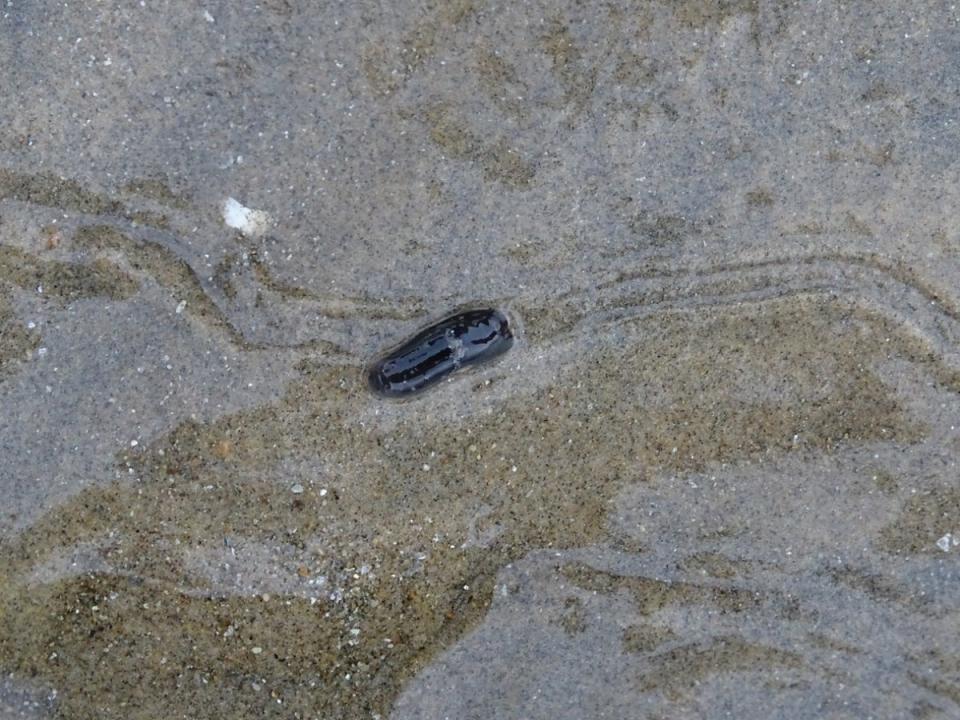Newly discovered sea slug species named after Indian president

- Oops!Something went wrong.Please try again later.
Zoologists have discovered a new species of sea slug living in eastern India and have named it after the country’s president.
The marine slug – named Melanochlamys Droupadi after Indian president Droupadi Murmu – is brownish-black with a ruby red spot and grows to a maximum length of up to seven millimetres.
Researchers from the Zoological Survey of India (ZSI) found the slug along a 3km stretch from the low inter-tidal zones of India’s eastern districts eastern states West Bengal and Odisha.
They collected nearly 150 specimens from the north-eastern coast of the Bay of Bengal and a thorough molecular analysis confirmed the novel status of the species.
“All the specimens were collected from the Digha coast of West Bengal and the Udaipur coast of Odisha state, along the north-western Bay of Bengal,” scientists wrote in the study.
Sea slugs live in marine habitats and are found across the planet from the shallow intertidal areas, to the deep sea, and from the polar to tropical regions.
They feed on other small animals, including other species of smaller sea slugs, marine worms, as well as small fishes.
The newly discovered head-shield sea slug is a small invertebrate with a shell inside its body and is a hermaphrodite that gas both male and female reproductive parts.

“It is the second species from the Indian region and the third true tropical species,” researchers noted, adding that so far 18 species of sea slugs are known across the globe.
The study’s lead author Prasad Chandra Tudu from ZSI reportedly comes from the same part of India as the president and hence decided to name the sea slug in Ms Murmu’s honour.
“As scientists, we have the freedom to name species which we discover. Since both the president and I come from the Rairangpur area of Mayurbhanj, I decided to name the species after her to honour her ascension to the high office,” Dr Tudu told the Hindustan Times.
The findings were published in the journal Mollusca Research on Tuesday.

